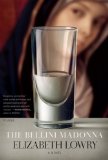Summary | Excerpt | Reading Guide | Reviews | Beyond the Book | Readalikes | Genres & Themes | Author Bio

A Novel
by Elizabeth Lowry
So what now? This is the 1st of September. Puppi, my host
and former rival, is holidaying in Switzerland and cannot be
reached. It’s bound to be a matter of mere days before he and
Maddalena discover that I am here. They’ll try to squeeze the
truth out of Anna. What will she tell or not tell them? How will
I explain my ungainly flight from Mawle and my lubberly presence
in Puppi’s palazzo a full five weeks before the start of the autumn
vacanze for which I was invited? And worse still, how am I
going to account for my sudden indifference to Bellini and all
things connected with him?
I am full of shame and pain. Asleep in bed at night I am troubled
by dreams of a frightening delicacy and tenderness: an open
sash window, a shadowed lake, a silver sandal, still bearing the impress
of a woman’s foot, left out in the spluttering rain. I awoke this
morning with a numbness cauterizing my left arm from shoulder to
elbow, as if an invisible body had been pressing against it all night.
The other, physical and more unsettling, change in me continues,
occurring just as regularly as it did at Mawle. Once or
twice a day, for no apparent reason, all six-foot-two of me, lean
and red-haired, starts to shake. During these fits I imagine that
the mesh of fine lines on my hands and arms begins to blur, and
the contours of my limbs themselves to dissolve in an electric
trembling, until I resemble an enormous insect, a large fly perhaps,
the last of the summer flies, twitching its wings and rubbing
its forelegs together. But then, when I peer into the mirror in
Puppi’s bathroom (the large oval mirror, gilt-framed but not too
ostentatious; although this is a palazzo it is, in spite of its ornate
stuccoes, its marble stairway, its courtyard and well, its stables and
barchessa, subdued and shabby), I see that I am after all still the
same middle-aged man I was before the shaking started, T-bone of
sternum and clavicles in place, my weak heart thud-thudding in
its tented ribcage that still insists on rising and falling; my offending
organ asleep, finally, in its bed of coirlike hair.
The self-hatred I feel is never-ending.
Artemisia, Puppi’s housekeeper, goes about with as much
commotion as possible during the daytime, hauling pots and pans
to the cortile to be scoured, and beating assorted rugs and pillowcases
with a rattan whisk. The transistor radio which her son
bought for her is on in the chilly mornings, through the hazy orange
afternoons, into the chirruping dusk, belting out “Buongiorno
Tristezza” (Buongiorno . . . tristezza! Oggi ho imparato che
cosa è rimpianto, l’amaro rimpianto, l’eterno rimpianto . . .) and
other hits about unattainable women by Claudio Villa. They
send a battery of fiery darts straight into my heart. The boy appears
at midday on his scooter, forks down a silent plate of macaroni
in the kitchen, and disappears in a cloud of rattling red dust.
Then I am fed. If I could just once cook my own food, dice a
potato or peel a carrot, perhaps I would feel more like myself! But
Artemisia has even the vegetal life of the villa under control.
Too afraid of what I might say if I were to use the telephone,
I have begun two letters to Anna, one apologetic and firmly regretful
and the other apologetic and tender, but the monotonous
beating of rugs, so much like the pounding of a human heart, and
the crooning, and the dust, make me feel like a fool.
All together it is, as my students would say, a bum deal.
•
To be frank, I think the heat is getting to me. Slumped between
waking and sleep in the mornings I think again of the night a
week ago when I crept upstairs to my old room at Mawle and saw
Anna through the chink of her door, head averted and dressing
gown partly unbuttoned, trying to pull the elastic band from
her hair. A small porcelain lamp burning on the dressing table
threw a shadow into each tired fold of her body. She must have
been reading: an open magazine lay in the indentation on the
bed. She did not hear me and as I could hardly bear to look at her
I stared instead at her elbows moving vaguely in their loose
sleeves. The August wind, more heat than air, blew through the
branches of the elms outside and lifted the curtain, exposing a
moon as thick as a cheese. She got up to close the window and
I left.
Excerpted from The Bellini Madonna, by Elizabeth Lowry, published by Farrar, Straus and Giroux, LLC. Copyright © 2008 by Elizabeth Lowry. All rights reserved.
Your guide toexceptional books
BookBrowse seeks out and recommends the best in contemporary fiction and nonfiction—books that not only engage and entertain but also deepen our understanding of ourselves and the world around us.